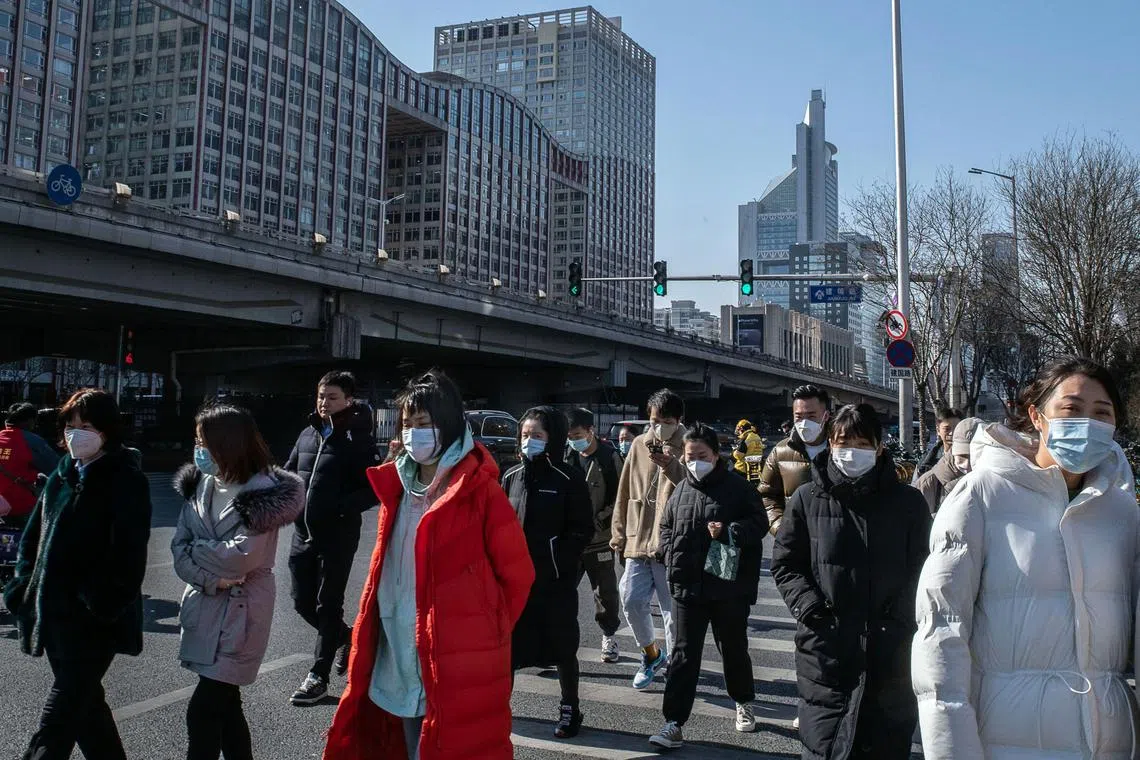China’s consumer boom thwarted by secret stock trades, misuse of loans
Sign up now: Get ST's newsletters delivered to your inbox

Consumer confidence in China has taken a hit in the wake of Covid-19.
PHOTO: BLOOMBERG
BEIJING - President Xi Jinping’s push for a consumer-led economic recovery has hit a new barrier: Chinese citizens misusing cheap consumer loans.
As banks flood the market with a variety of lending products after pressure from Beijing for them to pump up the world’s second-largest economy with cheap loans, some borrowers are taking advantage of the low interest rates to pre-pay their mortgages or invest in stocks instead of buying goods.
The practice, which is banned by regulators, risks undermining Beijing’s attempt to engineer an economic recovery tied to consumption as the nation tries to regain its footing after years of stringent zero-Covid policies.
Sally, a 37-year-old financial worker, used two consumer loans totalling 798,000 yuan (S$157,600) to pay off a mortgage on her home. She got the loans at an annualised rate of 3.2 per cent and 3.65 per cent respectively – low rates compared with her mortgage rate of 5.65 per cent.
“That’s too high compared with all consumer loans that banks offered to me, which are all priced below 4 per cent,” said Sally, who asked that only her first name be used as the practice is prohibited. “I plan to apply for business loans to cut borrowing for my other home too, given the interest is as low as 3.2 per cent.”
Mr Xi and his top economic aides have encountered a psychological barrier in their drive to boost consumption as people remain reluctant to open their wallets due to the uncertainty over China’s growth outlook, according to Mr Shen Meng, a director of investment bank Chanson & Co.
Consumer confidence in China has taken a hit in the wake of Covid-19, with outstanding short-term consumer credit plunging from its peak at the end of 2019. In contrast, households have amassed a huge pile of savings.
The mortgage prepayment rush, which began in 2022, has gained momentum as Beijing struggles to restore confidence in the slumping property sector.
The real estate bust upended the long-held belief in the nation that property was a sure-fire way to build wealth and created a desire to quickly pay off mortgages.
Citigroup analyst Judy Zhang estimated that Chinese home owners likely pre-paid 4.68 trillion yuan worth of mortgages in 2022, according to a note last week.
China’s banking regulator in January asked lenders to beef up oversight of the use of personal loans and to make it clear to borrowers they will be held accountable by law if they breach contracts by misusing the funds for other purposes.
Despite this, Frank, a 29-year-old tech worker, took out a 300,000 yuan consumer loan so he can double down on his A-share investment, which he said had yielded a return of 20 per cent to 30 per cent annually in the past few years.
China’s benchmark CSI 300 Index has gained more than 6 per cent so far in 2023, after slumping 22 per cent in 2022.
“The interest rate is just so low, so I figured why not take advantage of that,” said Frank, who declined to share his full name for fear of reprisal from his bank. “The bigger the principal, the more returns.”
To qualify, he submitted a form of basic personal information on his bank’s mobile app and paid a visit to a physical counter for an identity check.
The application was so smooth that he could hardly recall if the lender asked him to declare that he would not use the money for purposes other than consumption.
The banking regulator fined some of the nation’s largest banks a combined 12.2 million yuan in September 2022 for violations, including failure to check personal business loans and consumer loans leading to misuse of the funds in the property market. BLOOMBERG


